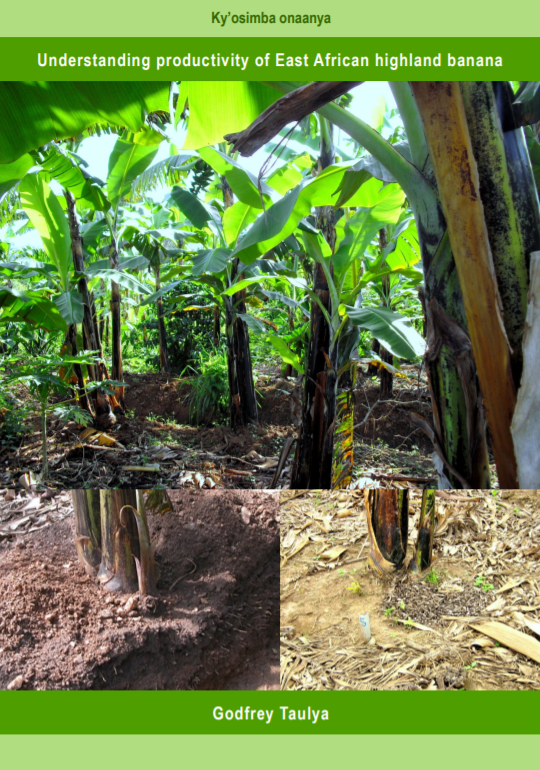Plant Production Systems
Projects
STEP-UP project (2019-2022)
 |
Improving productivity alone is often not enough for farmers to adopt sustainable intensification practices. Establishing links with input and output markets is indispensable. The STEP-UP project, coordinated by IITA and the Plant Production Systems group of Wageningen University, combines sustainable intensification of farming systems with a value chain approach to provide such linkages. The project works on mango value chains in Kenya, and cooking banana value chains in Uganda. Through participatory scenario development and impact assessment the project aims at discussing and converging the views of different stakeholders along the value chain, to be able to identify the most promising interventions enabling (agricultural) transformation pathways towards such a future. Project output:
|
Banana Agronomy (2017-2020)
 |
IITA-Uganda and the Plant Production Systems (PPS) chair group of Wageningen University have collaborated for almost 15 years on research on growth and nutrition of East African highland banana (Musa spp., AAA-EAHB). Currently IITA-Uganda and PPS are collaborating in two major projects on banana-based farming systems. The first project, described here, is led by NARO and named Improving scalable banana agronomy for small scale farmers in highland banana cropping systems in East Africa, Banana Agronomy in short (funded by the Bill & Melinda Gates Foundation). IITA-Uganda and PPS have three PhD-candidates in Banana Agronomy, focusing on:
Moreover, a simple banana growth model based on the QUEFTS approach (developed by Bert Janssen and colleagues), FIELD-banana, is currently being developed. Project output:
|
Understanding productivity of East African highland banana (2009 - 2015)
 |
In 2009, PhD student Godfrey Taulya (affiliated to the PPS group and IITA) carried out groundbreaking research around banana. In East African highland banana (Musa spp. AAA-EA), a primary staple food crop for over 30 million people in East Africa, drought stress, potassium (K) and nitrogen (N) deficiencies are major constraints to productivity. This study explored the main and interactive effects of water, K and N on growth and yield of highland banana. The aim was to build a crop growth model geared towards a decision support tool for managing the crop water and nutrient requirements across agro-ecological zones. To evaluate the highland banana dry matter allocation in response to drought stress and deficiency of K and N, individual plant measurements at harvest from two fertilizer response field trials in central and south western Uganda were analysed. An adapted soil water balance model was linked to the model for potential highland banana production (LINTUL-BANANA1) to explore the water-limited growth and yield of highland bananas in central and south-western Uganda. Project output:
Contact person: Godfrey Taulya (IITA) |
Understanding growth of East Africa highland banana: experiments and simulation (2005-2009)
 |
From 2005 until 2009, Kenneth Nyombi carried out his PhD research, under the AfricaNUANCES project, on the growth of East Africa highland banana through experiments and simulation. East Africa Highland banana yields on smallholder farms in the Great Lakes region are small (11−26 Mg/ha/cycle in Uganda, 21−43 Mg/ha/cycle in Burundi and 25−53 Mg/ha/cycle in Rwanda). The major causes of poor yields are declining soil fertility and soil moisture stress. In order to improve production, knowledge on highland banana physiology, growth patterns and response to fertilization is important, to establish the potential yield of the crop, to quantify the yield gaps between potential and actual yield, and to explore options for closing the yield gaps. The project used fertiliser trials and measurements in existing plantations, and integrated the results in a new dynamic model, LINTUL BANANA 1.
Project output: |
